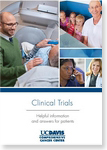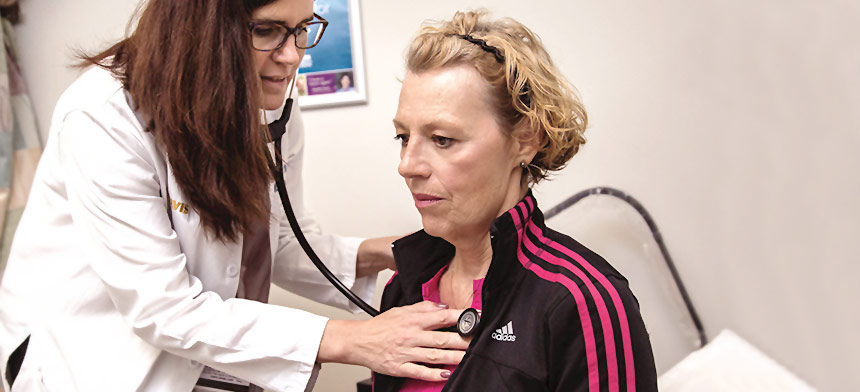Learn about clinical trials
Benefits of being part of a clinical trial
Choosing to participate in one of our clinical trials offers you today’s newest drugs and potential breakthrough treatments. Participating in a clinical trial is absolutely vital in our fight against cancer by helping us learn more about the disease and helping to deliver potentially life-saving medications to future patients.
When you are enrolled on a clinical trial, you will work with a dedicated Clinical Research Coordinator. Your CRC will guide you through the clinical trials process by coordinating your care, making sure all your questions are answered, and helping you receive the very best care while participating on a clinical trial.
Find a Clinical Trial
- Find a clinical trial at UC Davis
- Learn more about our Phase I Program
- NCI Clinical Trials search
- ClinicalTrials.gov search
Contact Information
- General inquiries about clinical trials: 916-734-0565
- Phase I clinical trials: 916-703-5558
- Pediatric cancer clinical trials: 916-734-2780
Ten things you should know about clinical trials
- By participating in a cancer clinical trial, you have access to the newest and most advanced treatments, before they are widely available.
- In a clinical trial, you are cared for by leading physicians in the field of cancer research.
- Before a new treatment is tested in a clinical trial, it undergoes extensive laboratory testing, often for many years. Only the most promising new treatments make it to clinical trials.
- Cancer patients decide to participate in clinical trials for many reasons, usually because they hope for a cure, a longer lifespan, an improved quality of life or to benefit other cancer patients in the future.
- By California law, cancer clinical trials are nearly always covered by insurance.
- Cancer clinical trials are governed by protocols, or plans, that spell out exactly what will happen and why. Protocols are carefully reviewed to make sure they safeguard patients and have scientific merit. Before a patient consents to participate in a clinical trial, he or she receives extensive information about the potential risks and benefits of the trial.
- If it becomes clear during a clinical trial that one treatment is better than another, the trial is stopped so that all patients receive the treatment. The patients in the trial are the first to benefit.
- Placebos are almost never used in cancer clinical trials. No patient goes without treatment, where a treatment is available.
- In a clinical trial, you receive close monitoring of your health care and any side effects.
- You may leave a clinical trial at any time, and choose instead to talk with your physician about other treatment options.




